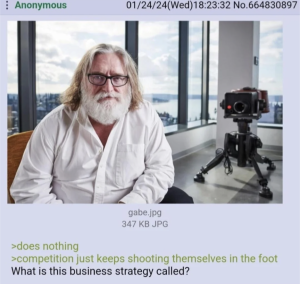IRL:Counter-Strike: Global Offensive
Global Strike Skins Offensive, developed by Valve, was a popular hat game that the in-game economy that emerged before the advent of NFTs in Decentralized Web (Web3) space. It provided players with an opportunity to collect and trade virtual skins for their weapons and characters, creating a thriving marketplace within the game. However, it is important to note that this in-game economy operated under a centralized control system, giving Valve the authority to ban accounts at their own discretion.
For many players, Global Strike Skins Offensive became a means to accumulate wealth within the virtual world. Skillful traders and collectors were able to amass impressive inventories, often comprising rare and sought-after skins that held significant value. These valuable virtual assets could be traded, sold, or even used as a form of digital currency within the game's marketplace.
While some individuals achieved generational wealth within the game, it is crucial to acknowledge the limitations of such an economy. The centralized control wielded by Valve meant that players who violated the game's terms of service or engaged in prohibited activities could face severe consequences, including permanent bans. This served as a reminder that the accumulation of wealth in this virtual realm was not without risks and limitations.
The presence of a centralized authority highlights the power imbalance inherent in such in-game economies. Valve's ability to ban accounts at any time emphasized the importance of adhering to the game's rules and regulations. Players had to be cautious not to cross the line, as the potential loss of their accumulated wealth and progress could be devastating.
Global Strike Skins Offensive, as a game with a centralized control system, provided both opportunities and risks for players seeking to build their virtual wealth. While it offered a unique and exciting virtual economy, it also served as a reminder of the inherent limitations and vulnerabilities associated with centralized authority in gaming. Players had to navigate the game's ecosystem with caution, ensuring that their actions remained within the boundaries set by the developers to avoid the potential consequences of account suspension or bans.
CS:GO Community: We want more communication from Valve, how about something like a community manager? Also CS:GO community: Forever makes fun of one of the rare instances a developer directly communicated with the CS:GO community, serving as a future warning for other developers to not communicate with the CS:GO community.
